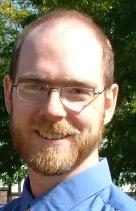 The People’s Climate March, coming up this weekend in New York City and in parallel demonstrations around the world, is shaping up to be the largest demonstration on the climate in North American history. It is designed to send a message to global leaders attending a special UN climate summit.
The People’s Climate March, coming up this weekend in New York City and in parallel demonstrations around the world, is shaping up to be the largest demonstration on the climate in North American history. It is designed to send a message to global leaders attending a special UN climate summit.
So what does that have to do with community economic development or the social economy?
Well, the answer is: lots.
It’s not just that the changing climate is likely the biggest threat our species has ever faced. Anyone who reads or listens to news hears that on a semi-regular basis (more links below if you’re interested). And although the worst is yet to come, the effects are already being felt.
That alone is enough to make it relevant for people working to strengthen communities.
But there’s more to it than that.
As Naomi Klein points out in her new book This Changes Everything, the motor that is driving climate change is our current dominant economic model, which she describes as being ‘at war with life on earth.’ CED practitioners saw the impacts of the dominant economy on people in urban neighbourhoods and rural communities decades ago – that is what helped spur the invention of community economic development.
Now, a half-century later, we see more clearly that people aren’t the only casualties of our economic system: the entire planet is.
The trailer for This Changes Everything sums it up nicely: “We can’t change the laws of nature. But we can change our broken economy. And that’s why climate change isn’t just a disaster. It’s also our best chance to demand – and build – a better world.”
That’s where community economic development and the social and solidarity economy has a major role to play.
Founding CCEDNet member Mike Lewis made the same connection in his recent book The Resilience Imperative. He and co-author Pat Conaty of the New Economics Foundation show how democratic, community-based economic alternatives offer many creative paths toward flourishing communities that live within the ecological limits of the planet.
The New Economy Coalition (NEC), which CCEDNet joined last year, recognizes that our ecological and economic crises are interconnected, and brings together a stellar array of groups to advance shared values and objectives. The People’s Climate March has been a priority for NEC, and the ever-growing list of more than 1,000 partners supporting the march and demanding action on climate change is very inspiring.
Solutions exist. We have to do more to make them better known. Projects like Beautiful Solutions: A Toolbox for the Future will help. And marching, riding a unicycle, signing a petition or doing whatever you can (this weekend and every day afterwards) to shift our economy and bend the course of history will help too.
The world we want is within our reach: a world with an economy that works for people and the planet; a world safe from the ravages of climate change; a world with good livelihoods, clean air and water, and healthy communities.
Let’s demand it.
- Join one of the 1,500 People’s Climate March events around the world
- Send a message to Canadian politicians via rabble.ca
- Sign a global petition by Avaaz
- Join CCEDNet
- …and spread the word!
- Damages from Extreme Weather Mount as Climate Warms (World Bank)
- Government says climate change will make weather more extreme (Globe and Mail)
- Limits to growth was right – new research shows we’re nearing collapse (The Guardian)
- Climate change is upon us and we must act (The Guardian)
- Climate Summit 2014: Catalyzing Action (United Nations)
- Preventing Climate Change and Adapting to it are Not Morally Equivalent (Grist)
- World must end ‘dirty’ fuel use – UN (BBC)
- Climate change is here, action needed now, says new White House report (CNN)
- The Nation’s Top Climate Scientist Predicts an “Ice-Free, Human-Free” Planet (Motherboard)
- Why I’m riding 5,000km on a unicycle across Canada to raise issue of climate change (Hill Times)
Michael Toye is the Executive Director of the Canadian CED Network, having worked in various other capacities with CCEDNet since 2000. Michael has also taught courses on CED and social enterprise at Concordia University and has written a number of articles and other publications on CED and the social economy, including co-editing the book, Community Economic Development: Building for Social Change.
Read Michael’s blogs





